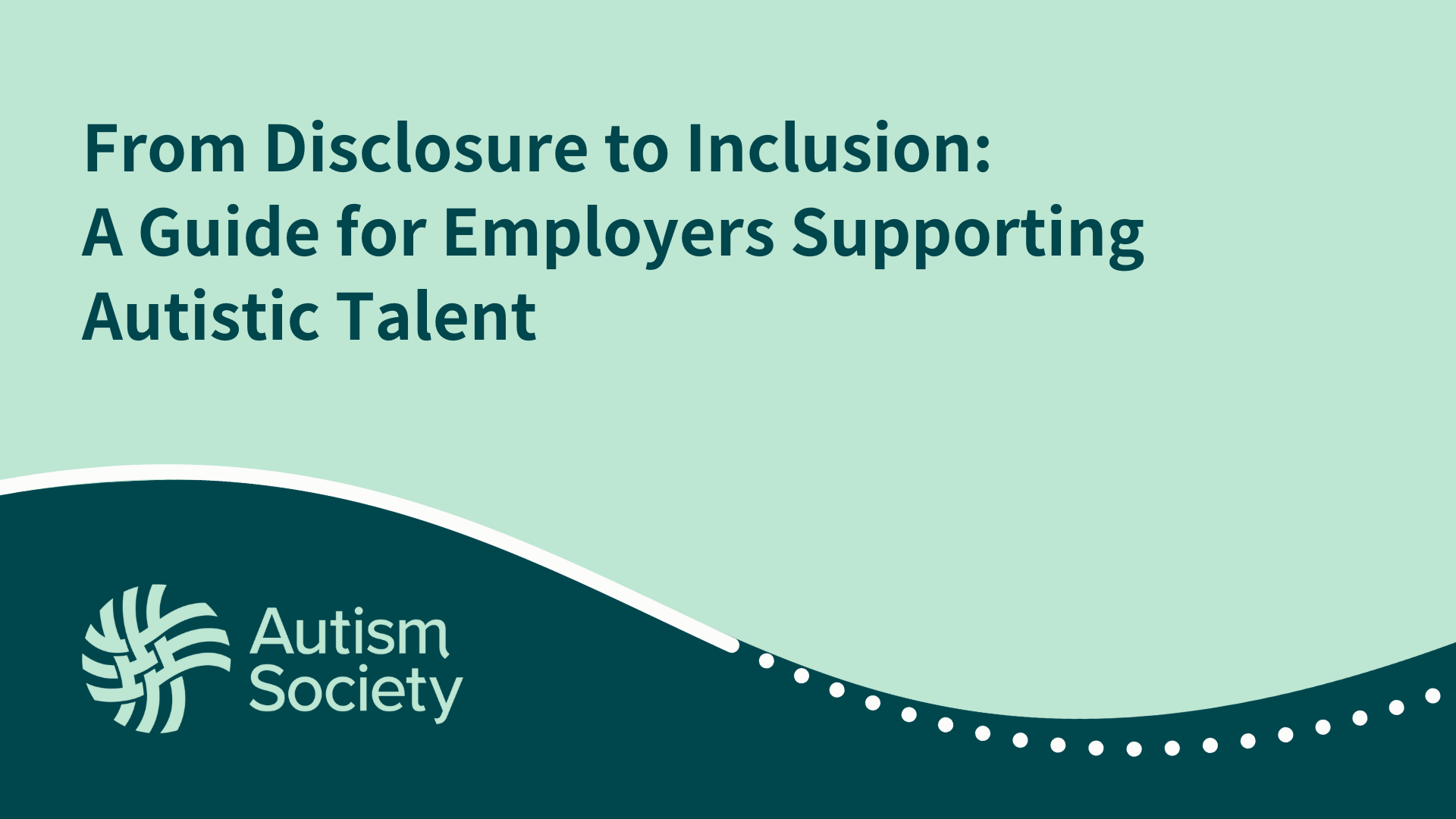
From Disclosure to Inclusion: A Guide for Employers Supporting Autistic Talent
Disclosure can be a Catch-22 for Autistic adults: Many employers encourage employees to bring their whole selves to work, but when Autistic people do that, we often encounter unintentional bias because of misconceptions spread by media or narrow views of the diagnosis because someone’s “sister’s next door neighbor’s cousin’s son” is Autistic and no way could they work here. Most HR professionals encourage disclosure, but they have never anonymously surveyed neurodivergent or employees with invisible disabilities to see what the reality of their lived experience is.
I want to share with you what I tell my fellow Autistics, as hopefully you will find some insight there, and strive to make your neurotypical/abled leadership aware that this degree of catering to the majority shouldn’t be required. Empathy is a two-way street, and until not just managers, but your company’s leaders make it known that it is not okay to deny someone opportunities or reasonable adjustments so as to not “burden them” or out of jealousy that they “get to” work from home, your company won’t be as inclusive as you think.
I often tell people that if you need to disclose to ensure that you don’t lose your job because of miscommunications or other aspects of how we interact with the world differently, definitely do that right away, but otherwise the best disclosures I’ve heard about, and experienced myself, are in what I call the “mic drop moments.” When someone compliments you on accomplishing something that was difficult for everyone else, but easy for you because your brain is wired differently, or because you approached the situation in a different way, thank them, then add “always happy to help the team with things like this, it is easy for me because of my Autism.” Then wish them well and walk away (literally or figuratively, if you can’t actually do that, then change the subject by asking a question to which they or someone else will need to give more than a yes or no answer). This leaves them thinking that Autism is a positive thing, versus the negative stereotypes, and psychologically lays the groundwork for them being ok if you ask for an adjustment – it benefits them to keep you around – versus you being a burden. I know that it’s not ideal that we make it about how they, or the team, benefits by having you there, but until we eliminate the stigma and misconceptions in society, it’s what I’ve seen work best.
If it’s too late to “come out” that way, that’s ok. Just remember that it’s always good to start with something that benefits someone else before discussing what you need. For example, “So that I can help ensure that the team meets its deadlines (or finishes first, gets the bonus, etc.), can you please explain if we’re supposed to do x versus y? I’m a very literal person and the words in the instructions could mean either thing. I want to get it right for the team.”
In the diversity, equity, inclusion, and belonging realm, you know that a diverse employee base makes companies more profitable, and when supported, the often honest-to-a-fault Autism community generally has lower attrition than other groups. Your job as employers is to take strides so that someday I don’t have to coach people on how to “come out,” that being their true self is as acceptable as a woman wearing pants or the hallmarks of all other affinity groups being visible.
When it comes to requesting a reasonable accommodation, don’t forget that employees do not need to have a diagnosis to get accommodation, just need to articulate the challenge and have a doctor or therapist willing to back up their request in writing. Originally, determining accommodation solutions were a partnership between the employer and the employee, oftentimes trial and error with job protection under the ADA to a certain extent until a solution that worked for everyone could be found, but more and more, companies are asking the medical professionals to say what is needed even though they just turn around and ask the autistic employee since they have no idea what the daily work experience is like at their office. The Department of Labor’s Job Accommodation Network reports that most accommodations for Autistics are free – from adaptations to the sensory environment to requiring meetings, or not penalizing for asking more clarifying questions than others. It can be really simple if your leaders are willing to adjust company culture to make it perfectly acceptable.
I hope you find this insightful, and that you follow the guidelines in our new Employer’s Guide to Disclosure to lay the groundwork for your closeted autistic employees to bring their whole selves to work, and for your “out” Autistic employees to thrive.
Carly Ott
Autism Society of America
Member Board of Directors
Chair of the Council of Autistic Advisors
Employment Task Force Steering Committee
Share:




